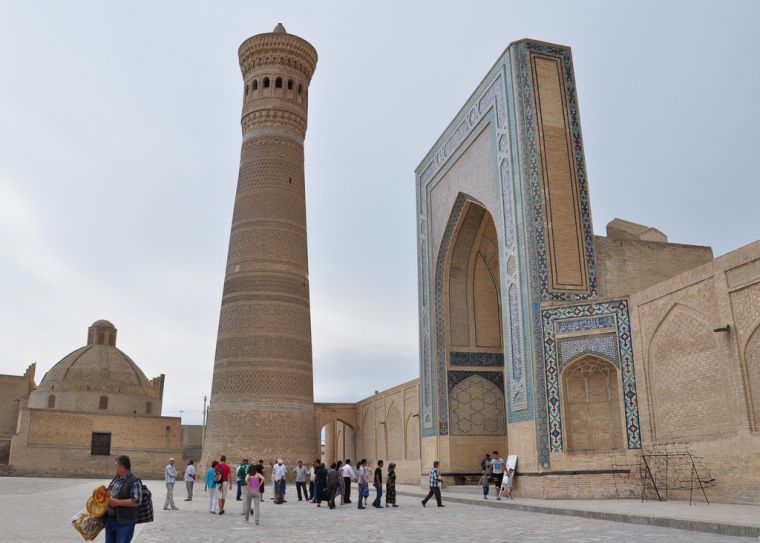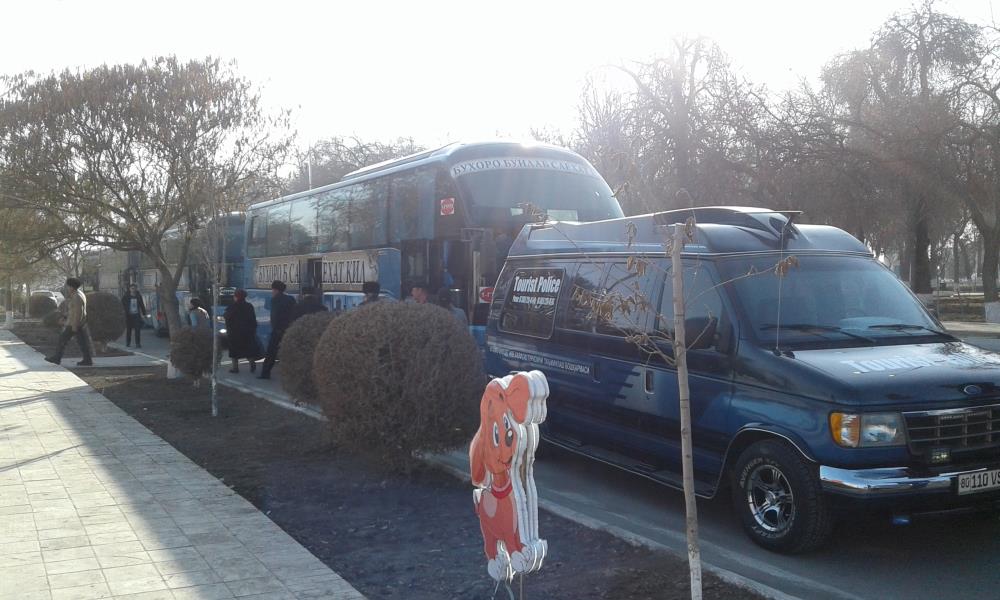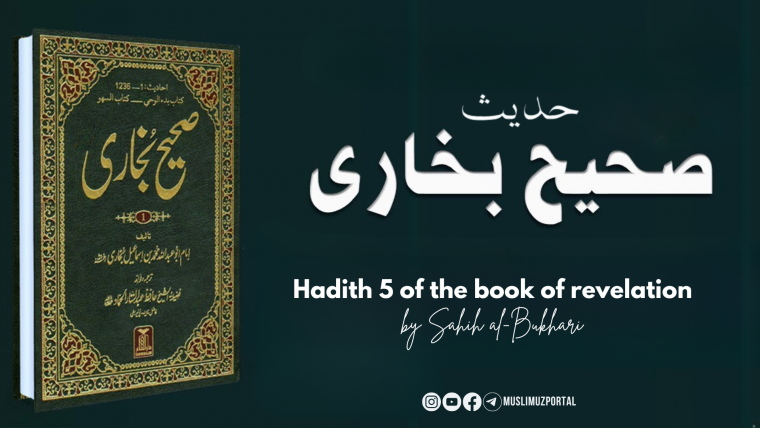Tashkent city



There are countless people who would like to visit historical city of Bukhara. It puts a lot of responsibility on the employees of internal affairs because security of tourists is highly crucial.
As one step of implementation of the Cabinet Ministers of Uzbekistan’s “Decree on provision of secure tourism in Bukhara, Samarkand, Khiva and Shakhrisabz cities” a new police department with 43 personnel was established in Bukhara region.
According to specialists of the sphere it will give additional reward for the development of the sphere. The main task of the law is to provide secure environment for the guests.
Press Service,
Muslim Board of Uzbekistan



(5) Hadith 5 of the book of revelation by Sahih al-Bukhari
حَدَّثَنَا مُوسَى بْنُ إِسْمَاعِيلَ، قَالَ: حَدَّثَنَا أَبُو عَوَانَةُ، قَالَ: حَدَّثَنَا مُوسَى بْنُ أَبِي عَائِشَةَ، قَالَ: حَدَّثَنَا سَعِيدُ بْنُ جُبَيْرٍ، عَنِ ابْنِ عَبَّاسٍ، فِي قَوْلِهِ تَعَالَى: "لا تُحَرِّكْ بِهِ لِسَانَكَ لِتَعْجَلَ بِهِ سورة القيامة آية 16، قَالَ: كَانَ رَسُولُ اللَّهِ صَلَّى اللَّهُ عَلَيْهِ وَسَلَّمَ يُعَالِجُ مِنَ التَّنْزِيلِ شِدَّةً، وَكَانَ مِمَّا يُحَرِّكُ شَفَتَيْهِ، فَقَالَ ابْنُ عَبَّاسٍ: فَأَنَا أُحَرِّكُهُمَا لَكُمْ كَمَا كَانَ رَسُولُ اللَّهِ صَلَّى اللَّهُ عَلَيْهِ وَسَلَّمَ يُحَرِّكُهُمَا، وَقَالَ سَعِيدٌ: أَنَا أُحَرِّكُهُمَا كَمَا رَأَيْتُ ابْنَ عَبَّاسٍ يُحَرِّكُهُمَا، فَحَرَّكَ شَفَتَيْهِ، فَأَنْزَلَ اللَّهُ تَعَالَى: لا تُحَرِّكْ بِهِ لِسَانَكَ لِتَعْجَلَ بِهِ 16 إِنَّ عَلَيْنَا جَمْعَهُ وَقُرْءَانَهُ 17 سورة القيامة آية 16-17، قَالَ: جَمْعُهُ لَهُ فِي صَدْرِكَ وَتَقْرَأَهُ، فَإِذَا قَرَأْنَاهُ فَاتَّبِعْ قُرْءَانَهُ سورة القيامة آية 18، قَالَ: فَاسْتَمِعْ لَهُ وَأَنْصِتْ ثُمَّ إِنَّ عَلَيْنَا بَيَانَهُ سورة القيامة آية 19، ثُمَّ إِنَّ عَلَيْنَا أَنْ تَقْرَأَهُ، فَكَانَ رَسُولُ اللَّهِ صَلَّى اللَّهُ عَلَيْهِ وَسَلَّمَ بَعْدَ ذَلِكَ إِذَا أَتَاهُ جِبْرِيلُ اسْتَمَعَ، فَإِذَا انْطَلَقَ جِبْرِيلُ قَرَأَهُ النَّبِيُّ صَلَّى اللَّهُ عَلَيْهِ وَسَلَّمَ كَمَا قَرَأَهُ".
Sahih hadith:
Narrated Said bin Jubair: Ibn 'Abbas in the explanation of the statement of Allah Move not your tongue concerning (the Quran) to make haste therewith. (75.16) said Allah's Apostle used to bear the revelation with great trouble and used to move his lips (quickly) with the Inspiration. Ibn 'Abbas moved his lips saying, I am moving my lips in front of you as Allah's Apostle used to move his. Said moved his lips saying: I am moving my lips, as I saw Ibn 'Abbas moving his. Ibn 'Abbas added, So Allah revealed 'Move not your tongue concerning (the Qur'an) to make haste therewith. It is for Us to collect it and to give you (O Muhammad) the ability to recite it (the Quran)' (75.16-17) which means that Allah will make him (the Prophet) remember the portion of the Qur'an which was revealed at that time by heart and recite it. The statement of Allah: 'And when we have recited it to you (O Muhammad through Gabriel) then you follow its (Quran) recital' (75.18) means 'listen to it and be silent.' Then it is for Us (Allah) to make it clear to you' (75.19) means 'Then it is (for Allah) to make you recite it (and its meaning will be clear by itself through your tongue). Afterwards, Allah's Apostle used to listen to Gabriel whenever he came and after his departure he used to recite it as Gabriel had recited it.
Reference:
Sahih al-Bukhari 1: Chapter 1, Hadith 5.